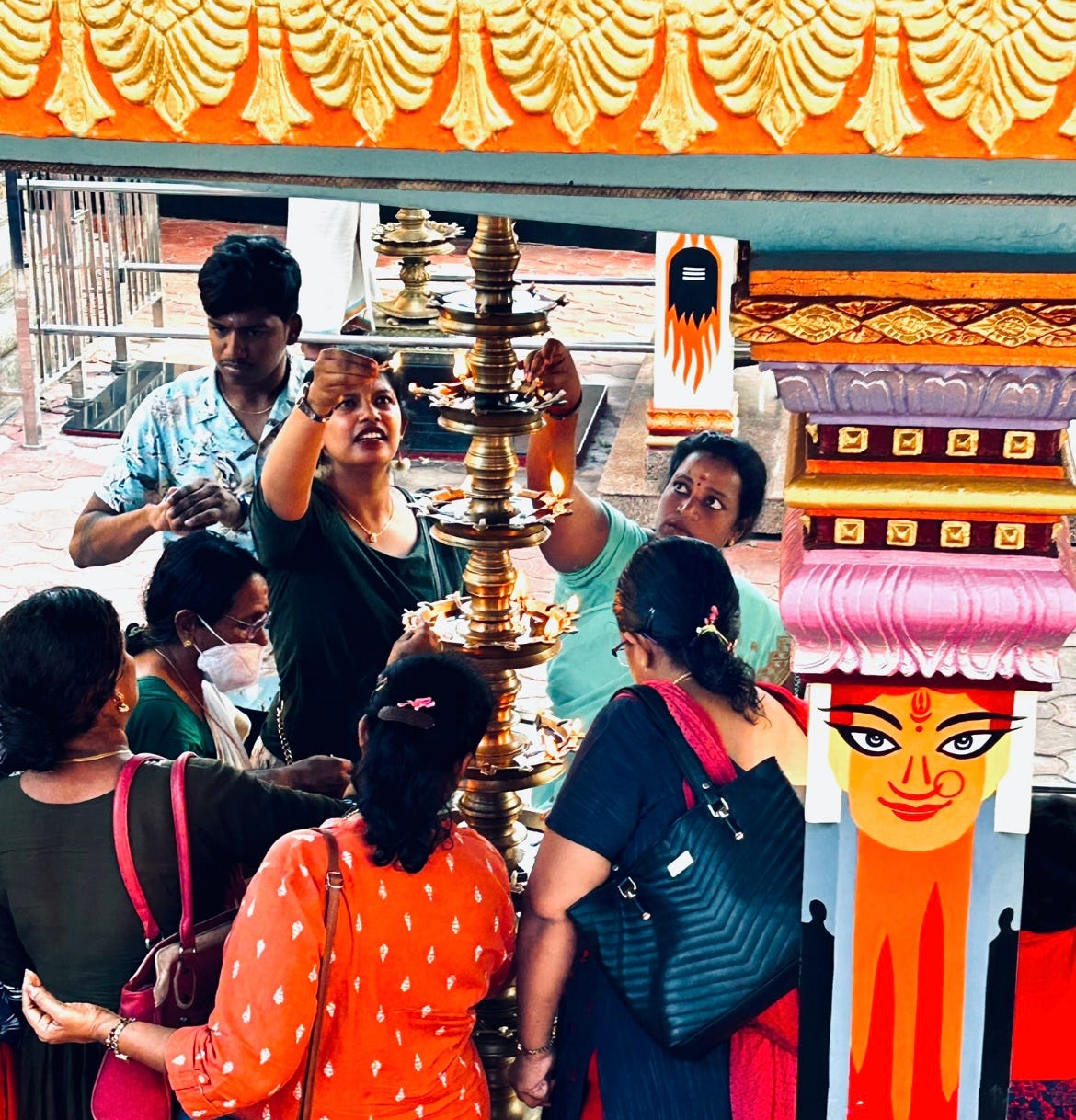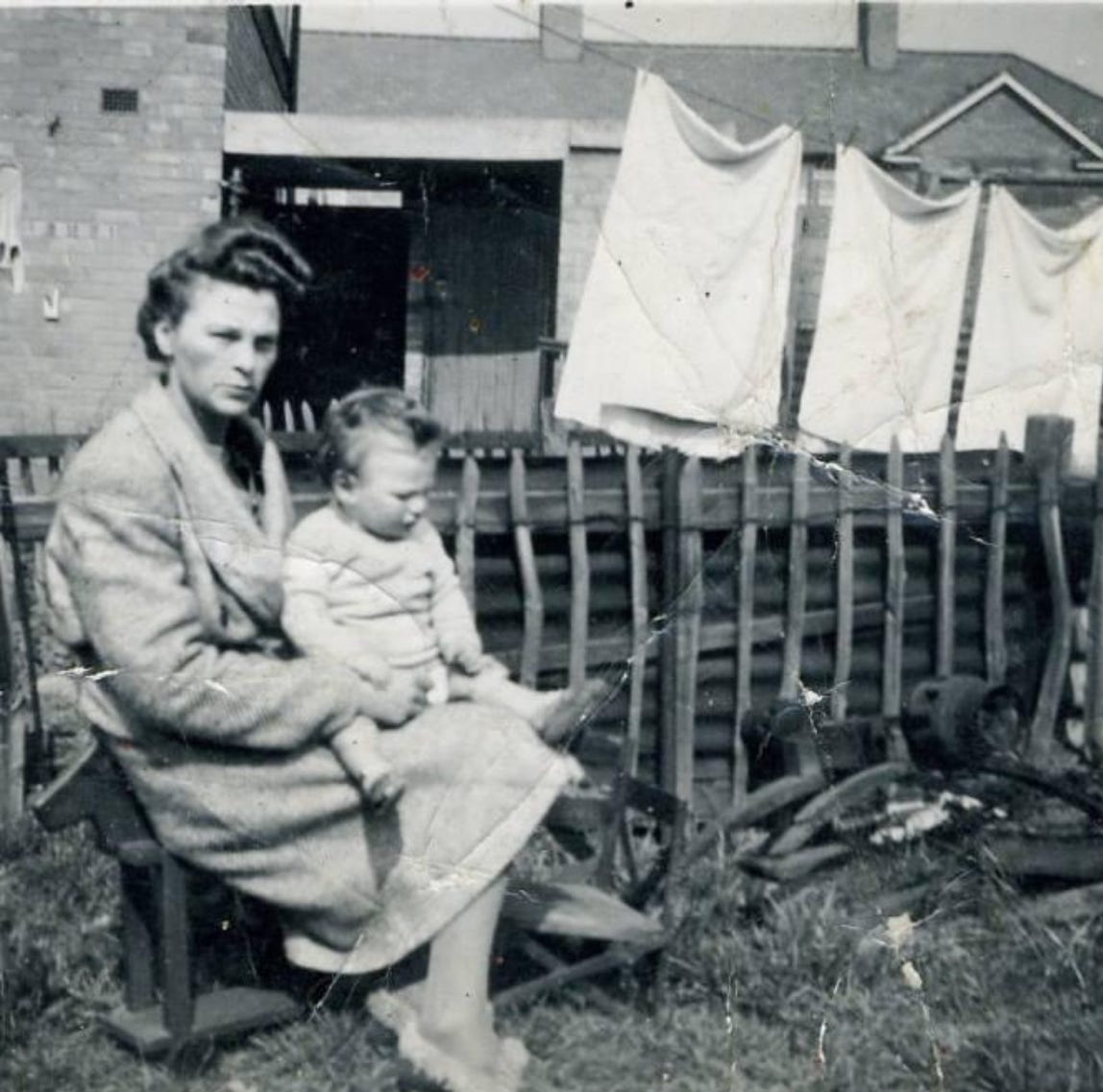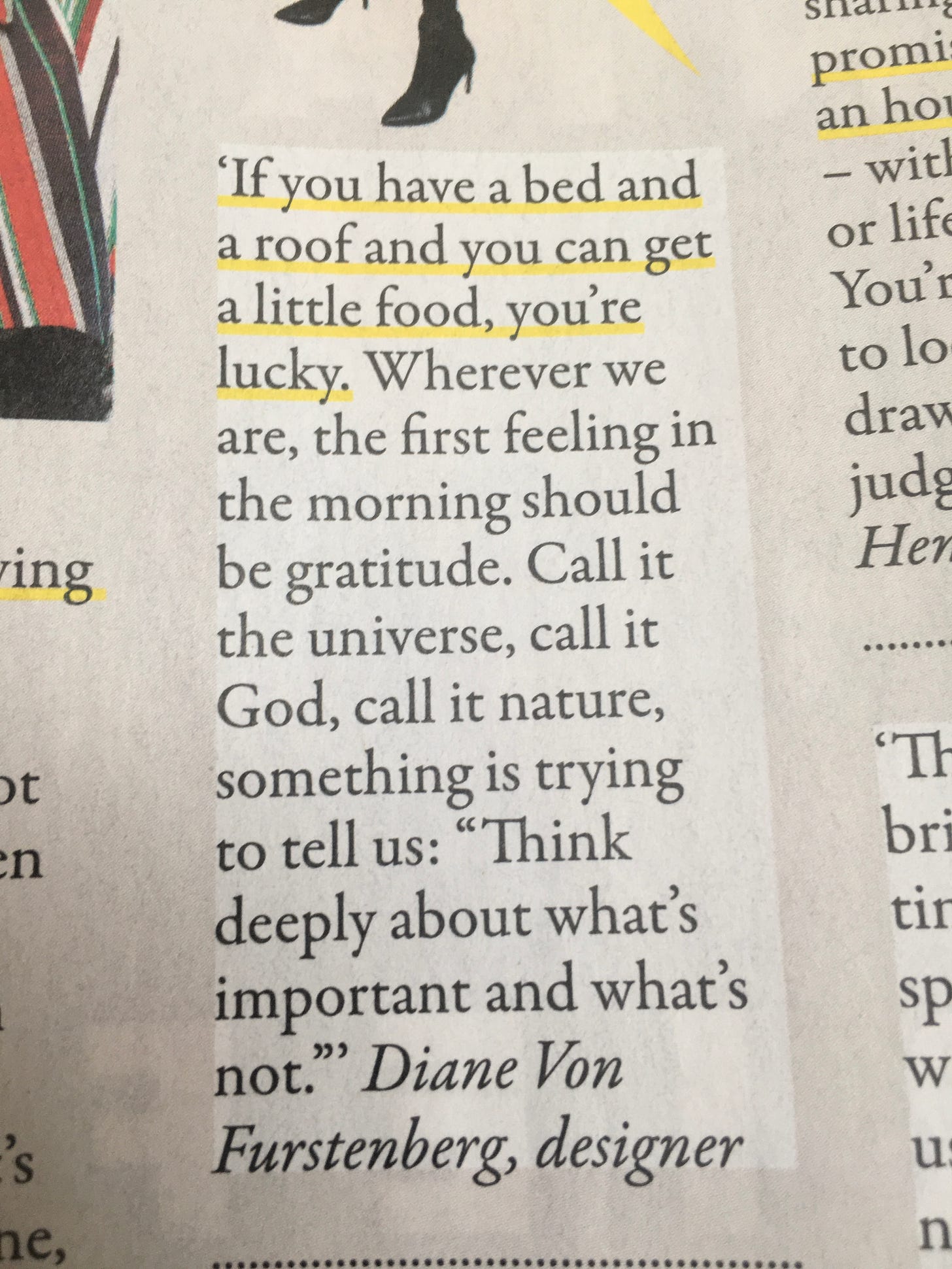Gratitude - more than a pop psych buzzword
Rhonda looks beyond the trendy exhortations of influencers and celebs at what being grateful really means.
Physically and psychologically, I’ve been all over the place.
Born to a single mum from a working-class family who never owned their own home, I was at age four whisked into a new world of private education and exotic world travel. One day I’d be picked up from school in my dad’s Ferrari (something that made me cringe), the next it might be my nana’s Hillman Imp with an engine that sounded like a sewing machine overreaching itself.
For part of the pandemic, when sometimes it felt I would never get my career back, I worked on a shop floor –10-hour shifts on my feet, working tills, disinfecting divider screens and touchpoints, remonstrating with people who refused to wear masks. It was depressing, but it was far from the worst job in the world.
Florence worked as a school dinner lady, and my grandad Fred worked on the factory floor at Dunlop Tyres. These were also far from the worst jobs in the world. And they were better than what came before. My nana lost her fiancé to a diving accident, and then she lost her first husband when the HMS Hecla was torpedoed in the Med west of Gibraltar, causing 282 mothers to lose their sons (273 of them, including Florence’s Sidney, never found). As a young widow swaddling her baby to run out to air-raid shelters when the sirens sounded, she suffered a breakdown.
Florence didn’t travel out of the UK until she was in her 60s, when my parents took her and my grandad to Tenerife with us. (Fred had travelled, including to India and Hong Kong, as a cook in the Navy; his main legacy of the war was a permanently shrunken stomach from several years in a POW camp).
Holidays, for my grandparents, were caravan parks by the seaside: Skegness and the like. When I still lived with them, I’d go too. I still remember moments from them, more than 50 years later: moments of pure joy to equal any I’ve experienced in more far-flung places since.
My grandmother would save all year for these trips by coach, making sure she set something aside so she could on one night of the holiday treat herself to a portion of plaice from the fish and chip shop. She looked forward to that solitary meal all year long.
Florence died more than 20 years ago but she is always with me wherever I go in the world. Whether it’s a gorgeous villa or a soul-stirring mountain view or an incandescent Greek sunset, I imagine seeing it through her eyes and my own eyes fill with tears at where she never got to go and what she didn’t ever see or do.
And Florence dares me, across the years, to take anything I have - three gorgeous sons, incredible friendships, a home of my own, and a career that I love and that takes me to fascinating places around the world - for granted. And how could I? Life could have been so different with just minor deviations in the complex interplay of random, chaotic circumstances that send all our lives in one direction or another, or spinning like a weathervane in high winds.
I pinch myself daily.
HOWEVER. The way the word gratitude is bandied about these days makes it seems you can transform your life simply by having an upbeat attitude. Try telling that to a Palestinian, or to a child working down a mine in Congo so we can all have smartphones and electric cars.
Of course it’s good to focus on the positive – it activates the hippocampus and the amygdala, which regulates the emotions; it reduces anxiety and depression; it gives you energy; and it’s just plain nicer for people around you. But be as optimistic as you like, bad things happen, life can be senselessly unfair, and if you really do subscribe to the notion that ‘everything happens for a reason’, you’re negating the inexplicable horrors of this world. It’s solipsism at its most offensive.
Vast portions of the world population live in extraordinarily difficult circumstances for all their lives. If you don’t live with that thought daily, travel more. See it for yourself and spread your money and good fortune around.
Yes, I do try to regard bad things that impact me directly as lessons of a sort (it helps me to accept them), but I can’t agree that they happen to me or to others as some kind of karma, to teach us to be better.
Nor do I believe that gratitude will bring you even more abundance, as many life coaches and gurus maintain. But if you feel grateful in your bones and not just as a way of getting more of something (money, happiness, whatever), it will shape your life –and it will do this because it will make you more humane, considerate and compassionate. And god knows we need more of that in this world right now.







Beautifully evocative - I'm grateful to have read this this morning :)
Rosie (Tracey's friend!)
What a beautiful last paragraph. I mean, the rest of it was amazing too and beautifully written but to feel grateful in your bones is such a wonderful way to present this and I personally believe this is how you find true joy in your life. Thank you for this read this morning ❤️